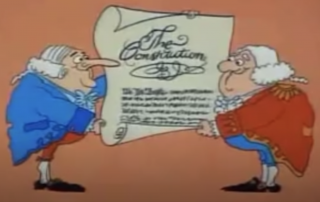Originalism is now well established, and most of the justices on today’s Supreme Court would express some fidelity to the basic concept. Even Justice Elena Kagan, one of the Court’s more liberal members, said at her confirmation hearing that “we are all originalists” these days. But the concept’s prominence has not provided the clarity some of its early proponents had hoped it would. In fact, fully conceived, originalism does not foreclose but requires the possibility that the provisions of the Constitution are best interpreted to produce “progressive” outcomes.
Originalism, Divided
Originalism—the idea that the meaning of each provision of the United States Constitution becomes fixed at the time of its enactment—in its contemporary form traces back to the advocacy of a few conservative judges, most prominently Antonin Scalia, in the mid-1980s. At the time, it was a rebel yell. The few self-styled originalists were railing against a long line of judicial precedents, particularly a set of Warren Court rulings that they viewed as mere expressions of liberal policy preferences.
Read Full Article »
Comment
Show comments
Hide Comments





